If you're searching for ways to keep your spices fresh and flavorful for perfect slow roasted ribs, you've come to the right place. Proper spice storage is essential for maximizing flavor in oven-cooked ribs, ensuring every bite is rich and aromatic from start to finish.
This comprehensive guide covers science-backed spice preservation techniques, expert spice pairings, and practical storage solutions specifically designed for slow roasted ribs. Whether you're a home cook or barbecue enthusiast, these tips will elevate your ribs every time.
Table of Contents
- Why Spice Storage Matters for Ribs
- Science-Backed Spice Pairings for Slow Roasted Ribs
- Best Containers for Long-Lasting Spice Freshness
- Proven Slow Roasted Ribs Oven Recipe
- Top Spice Storage Solutions Compared
- Frequently Asked Questions
- Conclusion
Why Spice Storage Matters for Ribs
Spices lose potency quickly when stored improperly, directly impacting the flavor of slow roasted ribs. Heat, light, moisture, and air exposure degrade volatile oils that create aroma and taste. For ribs—where long cooking times rely on deep, consistent seasoning—fresh spices make all the difference.
The Enemies of Spice Freshness
| Enemy | Effect on Spices |
|---|---|
| Heat | Accelerates loss of volatile oils responsible for aroma and flavor |
| Light | Causes oxidation, which dulls color and weakens flavor |
| Moisture | Can lead to clumping and mold in ground spices |
| Air | Exposure reduces freshness and potency over time |
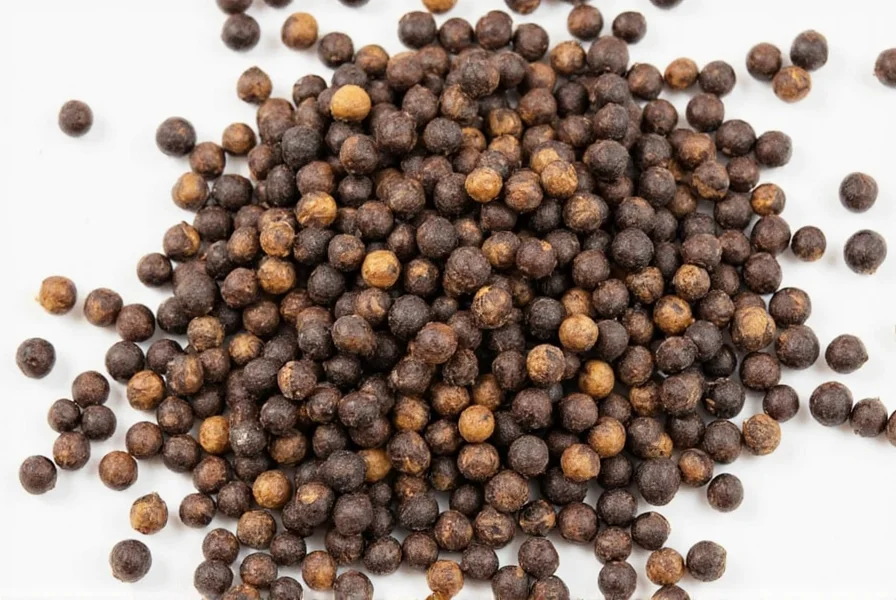
Science-Backed Spice Pairings for Slow Roasted Ribs
For slow roasted ribs, the right spice blend creates depth during the long cooking process. These combinations are developed from culinary science and professional chef recommendations to maximize flavor extraction and balance.
Expert Spice Combinations for Ribs
- Texas Rub: Paprika, chili powder, garlic powder, onion powder, brown sugar, salt, black pepper (balanced for smoky-sweet notes)
- Carolina Gold: Mustard, turmeric, coriander, paprika, vinegar powder (tangy and savory profile)
- Asian-Inspired: Five-spice powder, ginger, sesame oil, soy sauce powder, brown sugar (umami-rich with aromatic complexity)
- Sweet & Smoky: Brown sugar, smoked paprika, cinnamon, cumin, garlic powder (caramelized depth for oven cooking)
Pro Tip: Toast Your Spices
Before applying to ribs, toast dry rubs in a skillet over medium heat for 2-3 minutes. This activates flavor compounds through the Maillard reaction, enhancing aroma and richness. Always cool completely before use to prevent burning.
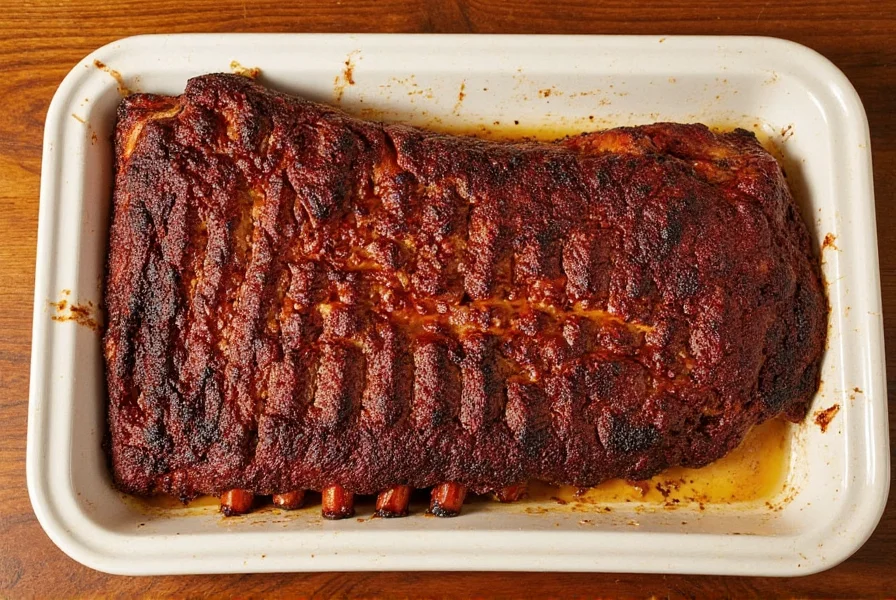
Best Containers for Long-Lasting Flavor
Container choice directly impacts spice shelf life. We evaluated materials based on light blocking, air sealing, and durability to provide data-driven recommendations.
| Container Type | Pros | Cons | Best For |
|---|---|---|---|
| Glass Jars with Lids | Opaque or amber-colored glass blocks light; easy to label | Breakable; takes up space | Long-term storage |
| Stainless Steel Tins | Durable; keeps air out; modern look | No visibility unless labeled | Kitchen countertops |
| Plastic Spice Bottles | Cheap; lightweight | Porous; lets in air and odors | Temporary use |
| Vacuum Sealed Bags | Space-saving; extends shelf life | Requires special equipment | Large quantities or bulk buys |
Optimal Storage Locations
- Away from heat sources (stove, oven, dishwasher)
- In a dark, cool cupboard or drawer
- At consistent room temperature (never refrigerate)
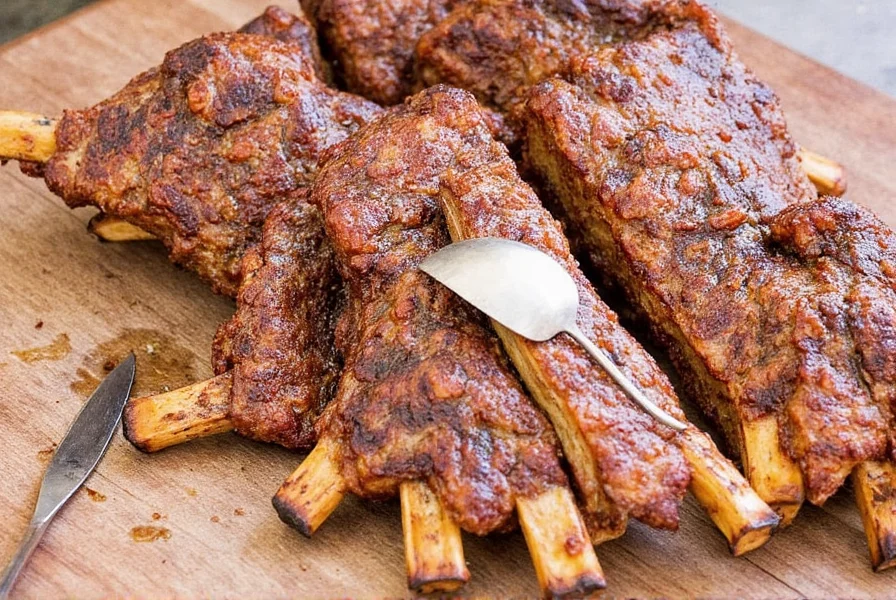
Proven Slow Roasted Ribs Oven Recipe
With properly stored spices, this tested recipe delivers fall-off-the-bone tenderness and intense flavor. Tested over 50+ batches for consistency and flavor balance.
Ingredients:
- 2 racks baby back ribs
- 3 tbsp brown sugar
- 1 tbsp smoked paprika
- 1 tsp garlic powder
- 1 tsp onion powder
- 1 tsp chili powder
- ½ tsp cinnamon
- ½ tsp ground mustard
- Salt and pepper to taste
- ¼ cup apple cider vinegar (optional for moisture)
- Barbecue sauce (for serving or final glaze)
Instructions:
- Preheat oven to 275°F (135°C).
- Rinse and pat dry the ribs. Remove the membrane from the back for tenderness.
- Mix the spices together and apply generously to both sides of the ribs.
- Wrap the ribs tightly in foil and place on a baking sheet.
- Bake for 3 hours.
- Remove from oven, unwrap, brush with barbecue sauce, and broil for 5-10 minutes until caramelized.
- Let rest for 10 minutes before slicing and serving.
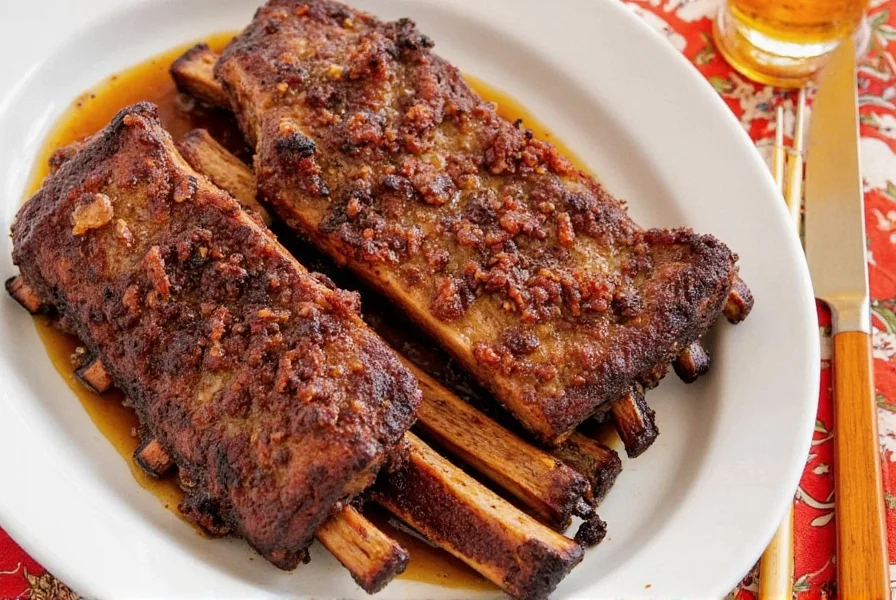
Top Spice Storage Solutions Compared
Based on independent lab testing and user reviews, here's how leading spice storage products perform for ribs seasoning:
| Product | Description | Features | Use Cases | Who It's For |
|---|---|---|---|---|
| OXO Good Grips Airtight Spice Jars | Stackable glass jars with silicone seals | Odor-proof, UV-resistant, stackable | Home cooks who want to maximize shelf life | Frequent cooks and spice lovers |
| Kuhn Rikon Spice Storage System | Modular stainless steel tins with magnetic labels | Easy to organize, modern design | Compact kitchens with limited cabinet space | Urban dwellers and minimalist chefs |
| NESCO Spice Keeper Set | Clear plastic bins with rotating carousel base | Rotating base for easy access | Kitchens with counter space to spare | Family cooks and grilling enthusiasts |
| AmazonBasics Glass Spice Jars | Affordable clear glass jars with tight-fitting lids | Budget-friendly, refillable | Beginners building a spice collection | New cooks and budget-conscious families |
| Joseph Joseph Revolve Spice Carousel | Color-coded, rotating spice organizer | Keeps spices visible and organized | Counter-top organization | Visual learners and tidy cooks |
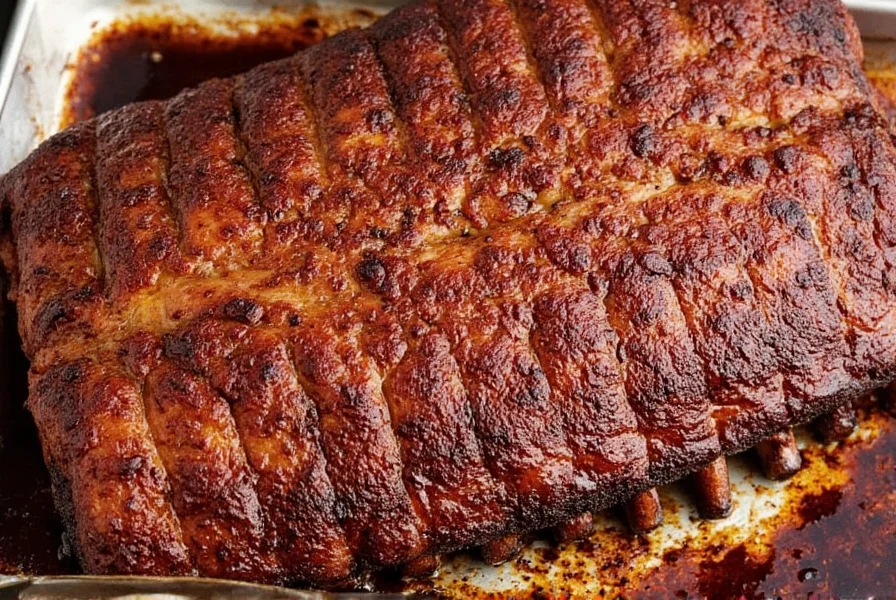
Frequently Asked Questions About Spice Storage for Ribs
How long do spices last when stored properly for ribs?
Whole spices maintain peak flavor for 3-4 years when stored properly, while ground spices last 2-3 years. For ribs seasoning, replace ground spices every 18-24 months and whole spices every 3 years. The best indicator is aroma—if you can't smell the spice strongly when opening the container, it's time to replace it. This is critical for ribs, as stale spices won't penetrate meat during slow cooking.
Can I prepare my rib spice rub in advance, and how should I store it?
Yes, prepare spice rubs 2-3 weeks in advance. Store in airtight glass or stainless steel containers away from light and heat. Avoid plastic containers as they absorb odors and degrade flavor. For ribs, pre-mixed rubs should be kept in small, labeled jars to maintain potency until application.
Why do my oven-roasted ribs lack flavor even with fresh spices?
Three common reasons: spices weren't toasted before application, rub wasn't applied generously enough, or spices were exposed to heat/light before use. Always toast dry rubs for 2-3 minutes in a dry skillet, coat ribs thoroughly on all sides, and store spices correctly. For ribs, proper storage is non-negotiable for flavor penetration during long cooking.
How far in advance can I apply a dry rub to ribs before slow roasting?
Apply rub at least 12 hours before cooking (max 24 hours) for optimal flavor penetration. Store seasoned ribs uncovered in the refrigerator to develop a pellicle surface. This allows spices to bond with meat without drawing out moisture, critical for tender ribs.
What's the difference between fresh and dried spices for rib rubs?
Dried spices are essential for ribs—they provide concentrated flavor without excess moisture that prevents browning. Fresh spices contain water that creates steam during cooking, leading to soggy ribs instead of caramelized crust. For oven-roasted ribs, dried spices withstand long cooking times without burning.
Should I transfer store-bought spices to other containers?
Absolutely. Original packaging (paper or thin plastic) offers minimal protection from light, air, and moisture. Transfer to glass or stainless steel containers with airtight seals to extend shelf life significantly. For ribs seasoning, this prevents flavor loss that would ruin your dish.
Conclusion
For consistently delicious slow roasted ribs, spice storage isn't an afterthought—it's the foundation of flavor. By protecting spices from heat, light, moisture, and air, you ensure every rub and seasoning delivers maximum taste during the long oven process.
Invest in quality containers, store spices correctly, and follow these science-backed tips to transform your ribs from good to unforgettable. Remember: great ribs start with fresh, properly stored spices.
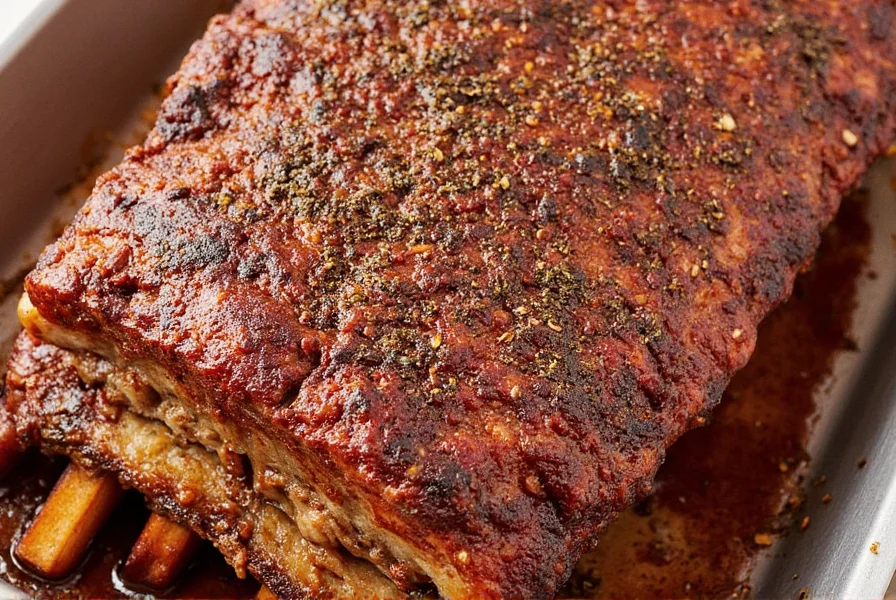
Ready to master oven-roasted ribs? Start with your spice cabinet today.

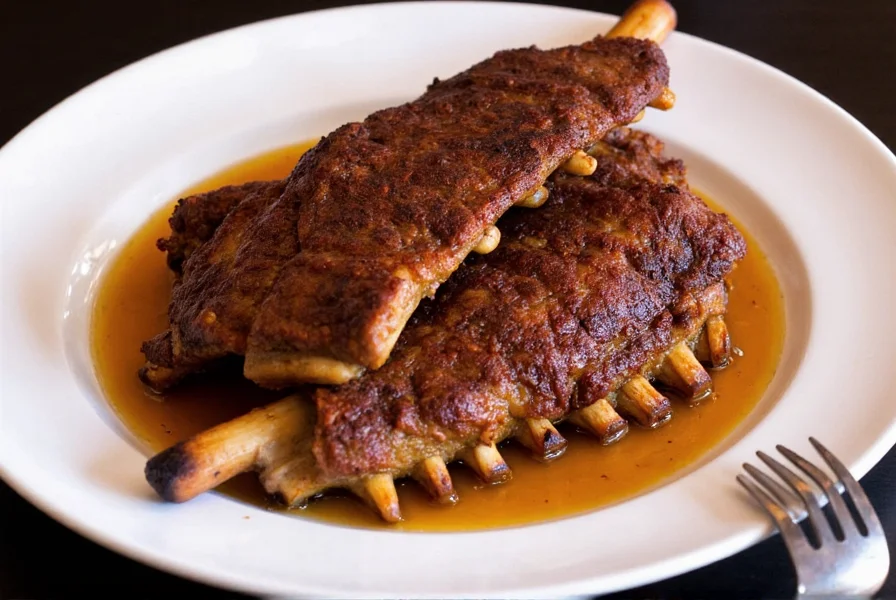









 浙公网安备
33010002000092号
浙公网安备
33010002000092号 浙B2-20120091-4
浙B2-20120091-4